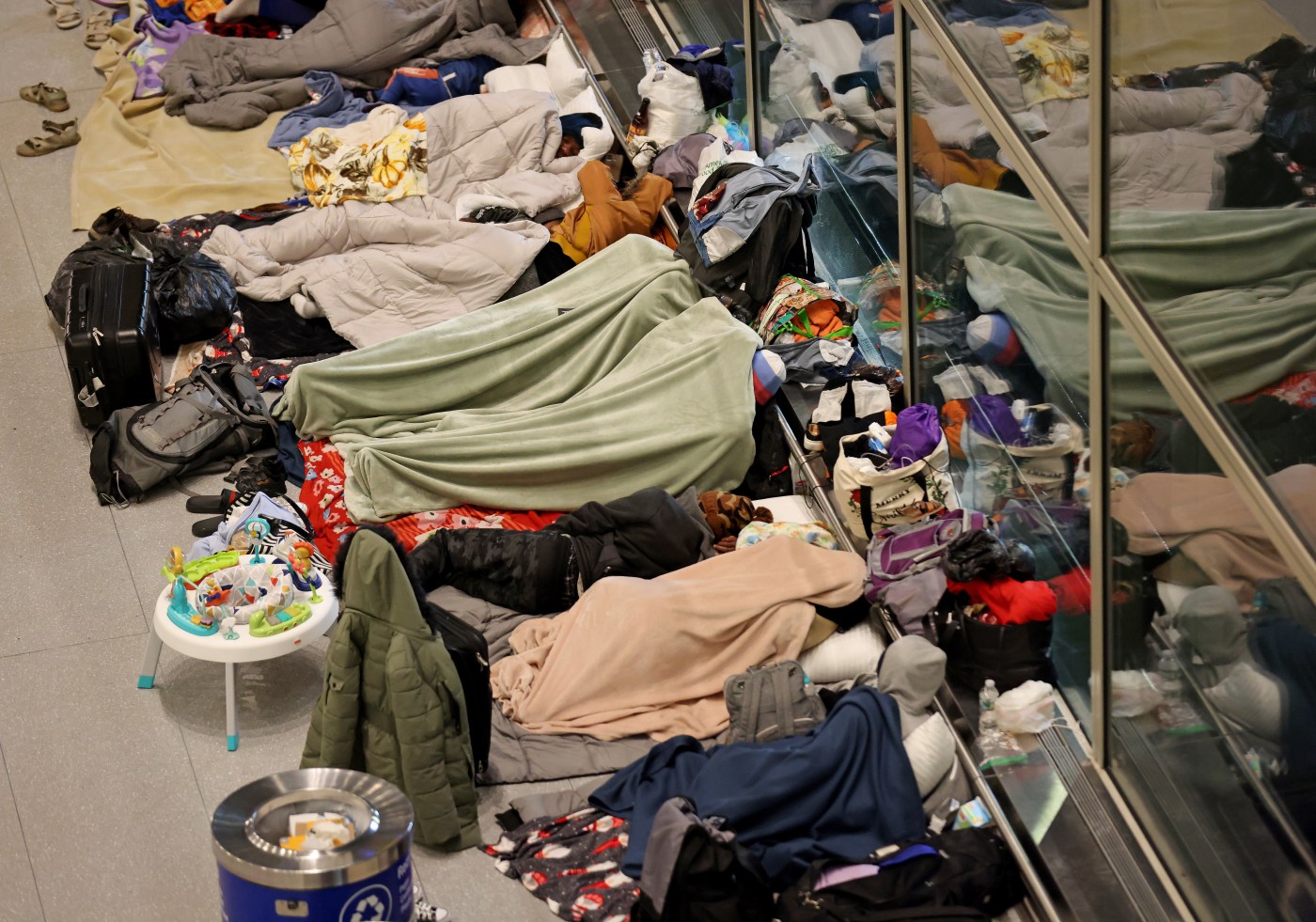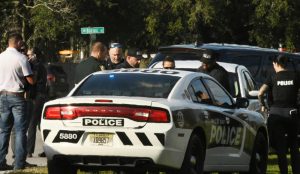
Boston Mayor Wu calls Roxbury rec center ‘painful’ option for migrants
Boston Mayor Michelle Wu criticized a state plan to use a Roxbury community center as an overflow site for migrants with emergency shelters at capacity, saying the decision to shift the burden to an underserved community seems “painfully familiar.”
Gov. Maura Healey’s administration is eying the state-owned Melnea A. Cass Recreation Complex as a temporary overflow site, particularly for the many homeless migrant families sleeping overnight at Logan International Airport, the head of Massachusetts’ shelter response confirmed to the Herald last Friday.
“For the first community where this is being proposed to be Roxbury, a community that over so many decades has faced disinvestment, redlining, disproportionate outcomes, it’s very painful and it’s painfully familiar,” Wu said Monday on a WBUR Radio Boston program.
She added, “It feels like a particular inflection point when we are now taking offline buildings that are beloved and well-used and dedicated to community programs because we now have such a crisis.”
Related Articles
State mattress disposal ban has been ‘disastrous’ for Boston, city councilors say
Boston City Council blocks action on $13M anti-terror grant … again
Sticker shock: Boston homeowners seeing higher property taxes in 2024
Boston Mayor Wu punts rejected anti-terror grant back to City Council
Boston Mayor Wu to campaign for Biden in New Hampshire on heels of Trump victory in Iowa
Wu noted that since the building is state run, the city doesn’t have a choice in the matter, and said that if the proposal were to move forward, migrants could begin moving into the recreation center as soon as Wednesday, thereby displacing many programs geared toward seniors and young people.
She estimated that there could potentially be roughly 300 to 400 migrants living at the Roxbury complex, and pointed to feedback she and other elected officials heard from a community listening session last Friday. Residents on that call preferred that the shelter be temporary through the winter, as programming ramps up there in the summer when the pool opens, Wu said.
Massachusetts’ emergency shelter crisis — with roughly 600 families on the waitlist — is not a problem that was created by the state, Wu said, pointing to a “broken federal system and an exponentially increasing flow of people who are vulnerable.” But the decision to use the center was the state’s choice, she said.
The mayor noted that the city did not include the Roxbury recreation complex as a potential site for low-threshold housing when it was eying possible sites to deal with the opioid and homelessness crisis at Mass and Cass two years ago.
Wu said that while the governor is “doing her very best to manage this” crisis and there are “no good options” in the matter, Boston is already taking on the state’s largest share of the burden, by “hosting some 1,400 of the emergency assistance units out of the 6,000 or so the state has.”
This is taxing for a city emergency shelter system that already absorbs homeless individuals largely excluded from a state shelter system that is mandated to focus on families, such as pregnant women and women with children, she said.
Today, roughly 25% of beds in Boston are for new migrant individuals not connected to a family, the mayor said.
Wu said she will be in Washington, D.C. on Tuesday, where she will echo the governor’s petition for further resources from the federal government to deal with the migrant crisis. She plans to make that pitch as part of her visit with U.S. Homeland Security Secretary Alejandro Mayorkas, she said.
Referencing a chart the state shared at last Friday’s community listening session, the mayor also called for the federal government to provide an update on the “bigger picture.”
Massachusetts shelters have been overwhelmed over the past year with a surge in demand driven in-part because of an influx of migrants fleeing their home countries and high housing costs that have affected people already living in the state.
The Healey administration runs three overflow shelter sites that have the capacity to temporarily house 250 families, according to the Executive Office of Housing and Livable Communities. Two of those sites are at a college in Quincy and a former courthouse in Cambridge.
“We need to continue pressure on the federal government,” Wu said. “It took five months for 1,000 new residents to come to the commonwealth, and then it was two months for the next 1,000 residents, and then it was a month for the next 1,000 residents. And that pace doesn’t show any sign of letting up.”


